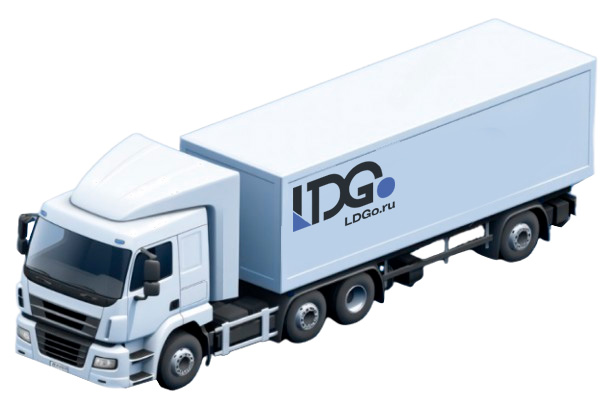Table Eggs & Hatching Eggs Delivery

Why LDGo Company
By choosing to work with us, you can be confident in the quality of transportation and the safety of your cargo.
We work professionally
The company employs drivers and logistics specialists with thousands of kilometers of experience behind them. They are experts in the nuances of delivering eggs and other perishable goods.
Tracking the cargo
The driver monitors the temperature regime for egg transportation throughout the entire route, periodically checking the cargo's condition after specific distances to prevent spoilage or damage.
Preparation for transportation
Before loading, the truck is prepared: it is thoroughly washed and treated with disinfectant solutions, then brought to the optimal temperature in °C to minimize fluctuations during cargo loading.
No intermediaries
Our own fleet includes all necessary vehicles for cargo transportation. We operate independently without intermediaries, maintaining competitive pricing and ensuring flawless quality control.
We are open to clients
During discussions, we are ready to accommodate all nuances, preferences, and requirements. All work is performed under contract, with strict adherence to deadlines.
Prices for transporting table and hatching eggs


How We Work
Operations follow a strict algorithm:
- You submit a request—it must include all necessary details about the goods and route.
- Upon receiving the information, the manager can promptly calculate the price and estimated delivery timeframe based on current rates.
- Payment is made via bank transfer or with deferred payment option (available only to regular clients).
- We begin work: we request and prepare the transport, assemble the documentation package, and depart on the route.
Service area for cargo delivery
LDGo's freight transportation coverage is extensive. We operate throughout Russia and internationally. We deliver cargo from CIS countries: Kyrgyzstan, Uzbekistan, Azerbaijan, Tajikistan, Georgia, Kazakhstan, Belarus. We also handle transportation from Iran, Turkey, Mongolia, and China. Finally, we ship goods from Europe via transshipment at the EU-Belarus border.
Conditions and requirements for transporting hatching and table eggs
Since eggs fall under the category of perishable goods, their transportation conditions have specific requirements. Primarily, these involve maintaining the correct temperature regime, proper cargo packaging, and preparing the necessary documentation.
Sanitary and Hygiene Standards
Packaging and transportation details for eggs are outlined in GOST 31654-2012 standards. According to these regulations, the product must be packaged in food-grade containers that ensure shell integrity and safety throughout the entire route.
- Only certified products are permitted for transportation: each unit must be stamped and verified for integrity and freshness.
- Each product category is packaged separately.
- The packaging itself must be clean, dry, and free of foreign odors.
- Eggs are sensitive to vibrations, so there are speed limits for their transport: no more than 80 km/h on paved roads and no more than 40 km/h on dirt or uneven roads.
The cargo batch is loaded in a manner that prevents shaking and movement of containers within the truck, thereby avoiding product damage.

Documentation for Meat Transportation
Proper documentation is an absolute requirement for transporting eggs and other food products. Correctly prepared paperwork serves as proof of the shipment's legality.
What the driver must carry:
- Waybill. Prepared by the logistics manager, it includes vehicle and driver details—specifically confirming the driver's work authorization (passed medical examination).
- Consignment note. This document records the planned route and inventory of all loaded cargo units in the truck.
- Service agreement. Signed with the client, it documents all agreed terms: approved route, delivery deadlines, and contingency protocols.
Additionally, product quality certificates and a veterinary certificate are required to confirm egg safety and compliance with sanitary standards. Along with vehicle and product documentation, the driver must also carry personal documents:
- Driving license
- Vehicle authorization
- Vehicle inspection certificate
- insurance
- Medical record book
If even one document is missing, there is a high probability of shipment delays, resulting in lost time and profit.
Vehicle requirements
Vehicles transporting perishable goods must meet strict requirements. First, they must be equipped with systems to maintain temperature conditions over extended periods. Second, they need easily washable interior linings resistant to regular cleaning and disinfection. Our fleet includes vehicles of varying capacities for transporting all egg grades: VOLVO FH and SITRAK CH7-MAX trucks with refrigerated semi-trailers. Maximum cargo weight: 22 tons.
Temperature Regimes
Eggs, especially hatching eggs, are highly sensitive to temperature fluctuations. During loading, extreme cooling should be avoided as it expands the air cell, reducing albumen and yolk volume. Recommended temperature ranges vary by product type: - Refrigerated eggs: +2°C to +8°C - Hatching eggs: +12°C to +18°C - Table eggs: +4°C to +8°C
Frequently Asked Questions
Yes, LDGo operates in compliance with the Federal Tax Service (FTS) requirements. Value-added tax (VAT) is already included in the service price.
Yes, payment deferral is available but applies only to regular clients.



